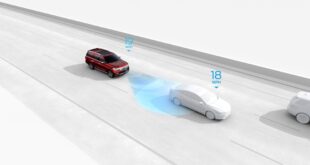KM 77 recently subjected the Volkswagen Tiguan to the infamous moose test, and while it passed easily, it still exhibited some strange behavior.
If you ask any automotive manufacturer about their biggest fears, there is a very high chance that they will say the “Moose Test.” It’s one of the toughest challenges for a car, and even some modern models can’t go through flying colors.
The Moose test is a challenging evasive maneuver test. It shows how a vehicle performs when avoiding a pedestrian or an animal suddenly appearing in front of the vehicle.
Sweden first introduced the test in the 1970s, and over five decades, a ton of cars failed to pass. That being said, the Volkswagen Tiguan recently had to face the Moose test and surprisingly passed. The Volkswagen Golf, on the other hand, failed the moose test in July this year at speeds higher than 70km/h. The hatch could only get the passing mark at 69 km/h, just short of the minimum criteria.
Tiguan failed during the first run at 47 mph (75 km/h). The car hit some cones, probably due to the vehicle’s position while entering the test track. The drivers noted that the car was slowed down automatically thanks to the vehicle’s stability control system.
On another attempt, the Tiguan was able to pass the moose test at 48 mph (77 km/h). However, KM 77’s video clearly shows that the vehicle wildly bounces at 77 km/h when trying to steer past the obstacles. This is not something that usually happens, and Volkswagen might want to have a look at the issue. It didn’t hurt the Tiguan or the occupants in any way, but it still looks disconcerting.








